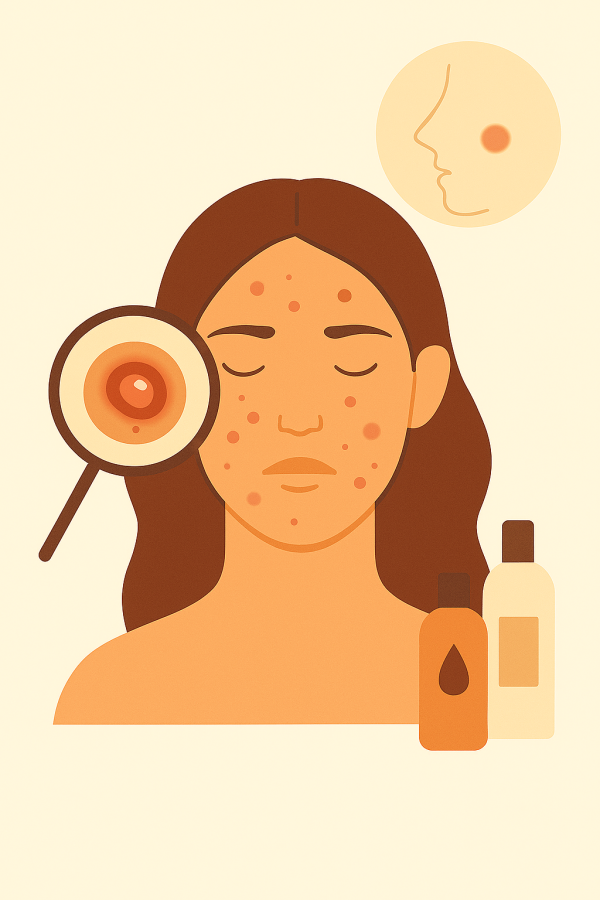Pimples are one of the most common skin concerns worldwide. While often associated with teenagers, they can affect people of all ages. Understanding what pimples are, why they form, and how to treat them can help you keep your skin healthier and reduce the risk of scarring.
📌 What Are Pimples?
- Pimples are small growths on the skin caused by clogged or inflamed oil glands.
- They are a symptom of acne, which is a broader skin condition.
- Pimples most often appear on the face, chest, shoulders, and back, but can occur anywhere oil glands are present.
⚠️ Symptoms and Types
Different types of pimples include:
- Whiteheads: Closed pores clogged with oil and dead skin.
- Blackheads: Open pores clogged with oil and debris that darken when exposed to air.
- Papules: Small, red, tender bumps.
- Pustules: Pimples filled with pus, often red at the base.
- Nodules: Large, painful lumps deep under the skin.
- Cysts: Severe, pus-filled pimples that can cause scarring.
🧪 Causes and Risk Factors
Pimples form when:
- Excess oil (sebum) is produced by the sebaceous glands.
- Dead skin cells clog pores.
- Bacteria (Propionibacterium acnes) multiply inside clogged pores.
- Inflammation develops in the skin.
Risk factors include:
- Hormonal changes (puberty, menstrual cycles, pregnancy).
- Family history of acne.
- Stress, which can worsen breakouts.
- Certain medications (steroids, lithium, hormone therapy).
- Diets high in sugar or dairy (still under study).
💊 Treatment Options
Over-the-counter treatments:
- Benzoyl peroxide: Reduces bacteria and inflammation.
- Salicylic acid: Helps unclog pores.
- Retinoids (adapalene): Prevent clogged pores.
Prescription treatments:
- Topical or oral antibiotics: Reduce bacteria and inflammation.
- Hormonal therapy: Birth control pills or anti-androgen medications for women.
- Isotretinoin: For severe, resistant acne.
Other therapies: Chemical peels, laser therapy, or microdermabrasion (performed by dermatologists).
🌱 Prevention and Self-Care
- Wash your face gently twice daily with a mild cleanser.
- Avoid scrubbing, which can irritate skin.
- Use oil-free, non-comedogenic skincare and makeup.
- Don’t pick or pop pimples — this increases scarring risk.
- Stay hydrated and eat a balanced diet rich in fruits and vegetables.
- Manage stress with exercise, meditation, or relaxation techniques.
✅ Quick FAQ
Are pimples contagious?
No, pimples cannot spread from person to person.
How long do pimples last?
Most pimples last 3–7 days, but deeper cysts may take weeks.
Should I pop a pimple?
No — popping can worsen inflammation, spread bacteria, and cause scars.
Final Thoughts
Pimples are common, but they don’t have to control your confidence. With the right skincare routine, healthy habits, and medical support when needed, you can manage breakouts effectively. If pimples are severe, painful, or persistent, consulting a dermatologist is the best step toward clearer skin.

